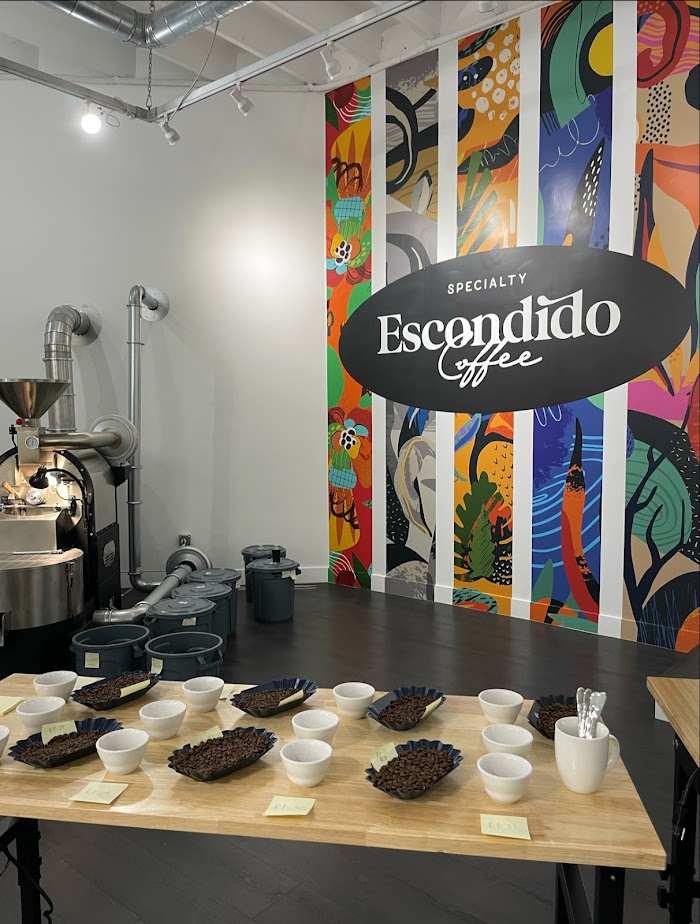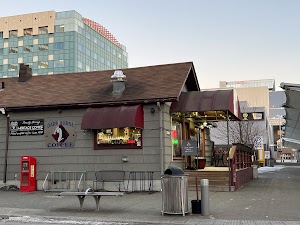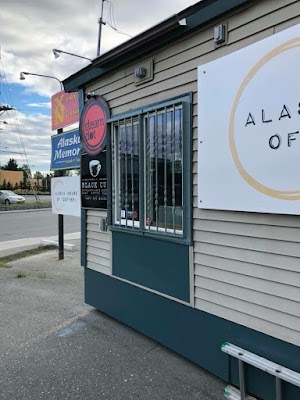Of course. Here is a 1500-word article based on the provided source content, enhanced with objective analysis, industry context, and SEO-optimized structure.
Escondido Specialty Coffee: Miami’s Hidden Gem Redefining the Farm-to-Cup Experience
In the vibrant, sun-drenched landscape of Miami, a city known for its pulsating energy and diverse cultural tapestry, the search for a truly exceptional cup of coffee can be a journey in itself. Amidst the ubiquitous cafecitos and bustling chain cafes, a quieter revolution is brewing—one focused on craftsmanship, transparency, and the singular pursuit of flavor. Leading this charge is Escondido Specialty Coffee Roasters, a name that, while perhaps “hidden” as its Spanish name suggests, is rapidly becoming synonymous with unparalleled quality among discerning coffee aficionados.
Nestled at 5748 NE 4th Ave, Escondido isn’t just a place to buy coffee beans; it’s an epicenter of passion and expertise. With a near-perfect 4.9-star rating from a growing base of devoted customers, this Miami roaster is a testament to what happens when dedication to craft meets a profound respect for the coffee bean’s journey, from a specific farm in El Salvador all the way to your cup. This article delves into the world of Escondido, exploring not only what makes their coffee so remarkable but also the broader context of the specialty coffee movement they so brilliantly represent.
What is “Specialty Coffee,” Anyway? The Third Wave Revolution
Before we can fully appreciate what Escondido achieves, it’s essential to understand the term “specialty coffee.” It’s more than just a marketing buzzword; it’s a standard of quality that signifies the highest echelon of the coffee world. This movement is often referred to as the “Third Wave of Coffee.”
- First Wave: This was the era of mass consumption, where coffee was a generic commodity. Think of the pre-ground coffee in a can that your grandparents drank. The focus was on affordability and caffeine, not flavor or origin.
- Second Wave: Pioneered by chains like Starbucks, this wave introduced coffee culture to the masses. Espresso-based drinks, flavored lattes, and the idea of the coffee shop as a “third place” became mainstream. While quality improved, the focus was often on dark roasts and a standardized experience.
- Third Wave: This is the current era, where coffee is treated with the same reverence as fine wine. The focus is on the bean itself: its specific origin (country, region, and even farm), the varietal of the coffee plant, the processing method used, and the unique flavor profile it possesses. Specialty coffee, as defined by the Specialty Coffee Association (SCA), is coffee that scores 80 points or higher on a 100-point scale, graded by certified quality tasters.
Escondido Specialty Coffee Roasters operates firmly within this Third Wave. Their business model is built on celebrating the unique characteristics of their beans, a philosophy that shines through in every glowing customer review.
Unveiling Escondido: A Chorus of Praise and a Commitment to Quality
A 4.9-star rating is a powerful signal in today’s review-driven economy, but the true story lies in the details of the customer experiences. Analyzing the feedback reveals a multi-faceted excellence that goes far beyond simply good coffee.
The Heart of the Matter: The Coffee Itself
Ultimately, a roaster is judged by the quality of its roast. On this front, Escondido receives universal acclaim. Customer Sebastián Román, who has “tried a lot of coffee,” declares that Escondido “truly stands out,” noting that the “depth and richness of their roasts are unmatched.” He specifically praises their “La Brisa” roast for its smooth flavors and “perfect balance of tropical fruits and citrus.”
This description is a hallmark of high-quality, single-origin specialty coffee. Instead of the one-dimensional, bitter, or “roasty” flavors of commodity coffee, Escondido’s product delivers a complex and nuanced tasting experience. Mike Olvera echoes this sentiment, highlighting that every variety has a “delicious coffee bean flavor” with “specifically mastered notes.”
This level of flavor articulation doesn’t happen by accident. It is the direct result of two key factors: exceptional green coffee beans and a masterful roasting process designed to highlight, not obscure, the bean’s intrinsic character.
A Transparent Journey: The Farm-to-Cup Connection
One of the most compelling aspects of Escondido’s operation is their direct relationship with their coffee source. Reviewer Alec Niyonkuru, who visited to buy a gift, was deeply impressed by this connection. “I was impressed by the fact that they had close contact with the farm from El Salvador where they get their coffee beans from,” he shares.
This is arguably the most critical element of the Third Wave ethos. By bypassing the long, convoluted chain of commodity coffee brokers, Escondido engages in a model closer to “direct trade.” This practice offers several profound benefits:
- Traceability and Transparency: Customers know exactly where their coffee comes from. This is not a generic “South American blend”; it’s coffee from a specific farm in El Salvador, with its own unique terroir and story.
- Higher Quality Control: A direct relationship allows the roaster to work with the farmer, providing feedback and ensuring that only the best, ripest coffee cherries are picked and processed according to the highest standards.
- Ethical Sourcing: Direct trade models typically ensure that a significantly higher percentage of the final price goes directly to the farmers and their communities. This fosters a sustainable partnership that rewards quality and empowers the producers.
When the staff at Escondido can explain the origin and processing of the beans, as they did for Alec, they are offering more than just a product; they are sharing a story and inviting the customer into a global relationship.
For the Home Connoisseur: Empowering the Enthusiast
Escondido also caters to the growing community of home coffee enthusiasts who take their brewing seriously. George Martin’s review provides a fascinating glimpse into this world: “I bought Escondido’s green beans and found they tasted best for me at a full city plus.”
This statement is packed with meaning. First, the fact that Escondido sells green beans (unroasted coffee) shows their confidence in their raw product and their respect for the home roasting community. Second, George’s reference to a “full city plus” roast level demonstrates the sophisticated dialogue happening between the roaster and its most dedicated customers.
To provide context, roast levels are a critical factor in a coffee’s final taste:
- Light Roast (e.g., Cinnamon, Light City): Roasting is stopped early. This preserves the most origin character, often resulting in higher acidity, and bright, floral, or fruity notes.
- Medium Roast (e.g., City, Full City): A balance is struck between origin character and roast-developed flavors. The “full city” level mentioned by George is a medium-dark roast where the bean has just entered the “second crack,” developing notes of caramel, chocolate, and a fuller body while retaining some of its original brightness. “Full city plus” is just a touch darker.
- Dark Roast (e.g., Vienna, French): The bean is roasted longer, and the flavor profile is dominated by the roast itself—smoky, carbony, and bold, with much of the delicate origin flavor being lost.
By finding his perfect roast level, George was able to unlock a “very smooth and fuller bodied treat.” This speaks volumes about the versatility and inherent quality of Escondido’s green beans.
Above and Beyond: The Human Element of Service
In a world of automated checkouts and impersonal transactions, Escondido distinguishes itself with exceptional, personalized customer service. Laura M.’s experience is a powerful illustration. Searching for “quality coffee for delivery,” she not only found a product she became “obsessed with” but also a level of service that is practically unheard of.
She describes their customer service as “beyond excellent,” noting that they are “responsive, always send additional samples and once even personally delivered the product to my house!” This isn’t just good business; it’s community-building. Sending samples encourages exploration and education, while a personal delivery transforms a simple purchase into a memorable, human interaction. It’s this dedication that builds the kind of fierce loyalty that fuels small, independent businesses.
The Escondido Experience: An Objective Analysis
Synthesizing the available information, a clear picture of Escondido’s success emerges. Their strategy is not built on aggressive marketing or flashy branding, but on a foundation of tangible, verifiable quality.
Credibility through Craft: The core of their appeal is a product that speaks for itself. The “mastered notes” and “richness” are not marketing claims; they are experiences validated by customers. This demonstrates a deep understanding of the art and science of coffee roasting—knowing precisely how to apply heat to a specific bean to unlock its most desirable flavors.
Trust through Transparency: The direct connection to their El Salvadoran farm is a masterstroke of modern business. It addresses the growing consumer demand for ethical and transparent sourcing. This is not just a feel-good story; it is a guarantee of quality. A roaster who knows their farmer is a roaster who is accountable for every step of the process.
Community through Connection: Escondido has cultivated an environment where customers feel seen and valued. From taking the time to educate a new buyer like Alec to personally delivering an order to a regular like Laura, they have prioritized relationships over transactions. This human-centric approach, combined with empowering home roasters like George, fosters a community rather than just a customer base.
Finding Escondido: Your Gateway to Specialty Coffee
For those in Miami or looking to have world-class coffee shipped to their door, Escondido Specialty Coffee Roasters is a clear choice.
Location: 5748 NE 4th Ave, Miami, FL 33137, United States. Situated in a less-trafficked area, it truly lives up to its “hidden” name, offering a destination for those in the know.
Offerings: Based on reviews, Escondido offers a range of products, including:
- Perfectly roasted whole beans with diverse flavor profiles (like “La Brisa”).
- Unroasted green beans for the home roasting enthusiast.
- A robust shipping service that delivers fresh coffee directly to your home.
In conclusion, Escondido Specialty Coffee Roasters is more than just a local business. It is a standard-bearer for the Third Wave coffee movement. It is a case study in how a relentless focus on quality, a commitment to ethical transparency, and a genuine passion for customer connection can create a brand that inspires devotion. They are not just selling coffee; they are offering an experience—an education in flavor, a story of origin, and a connection to a global community of people who believe that a simple coffee bean can be a source of extraordinary pleasure. For any coffee lover, from the casual sipper to the dedicated connoisseur, a taste of Escondido is a taste of what coffee is truly meant to be.



